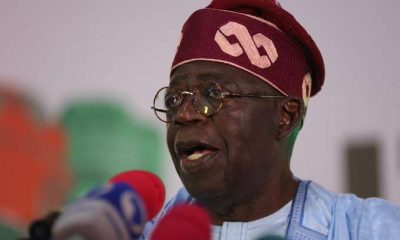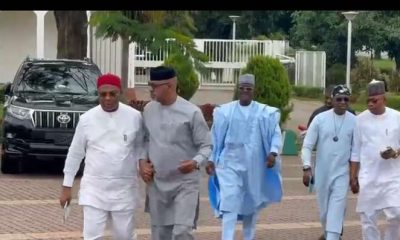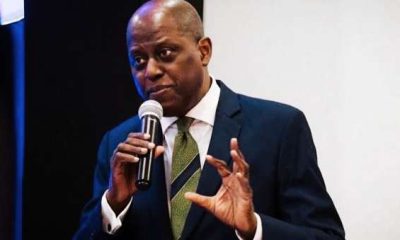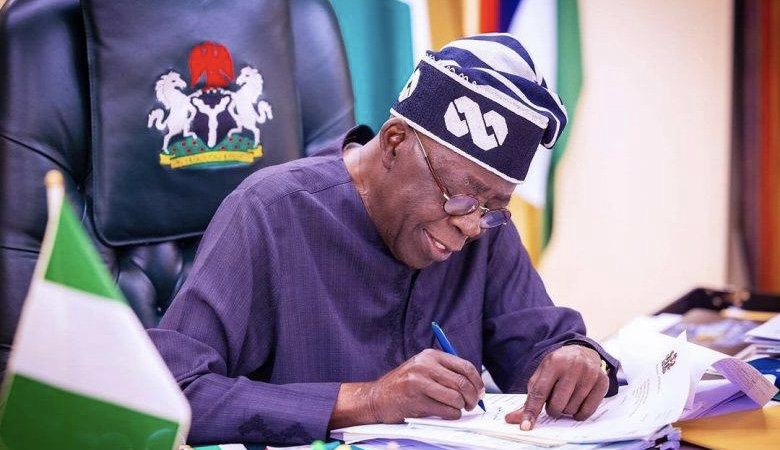Business
FG’s fresh Ways & Means deepens economic crisis
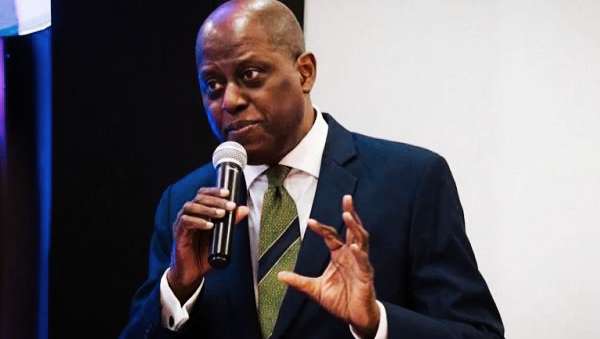
Recent reports suggesting the Federal Government’s continued dependence on borrowing from the Central Bank of Nigeria (CBN), is signaling to analysts that there is no respite in sight to the nation’s soaring inflationary pressure and foreign exchange volatility.
The speculation comes against the background of the assurance given by the Governor of the Central Bank of Nigeria, Dr. Olayemi Cardoso, at the recent spring meeting of the World Bank/IMF in Washington that the era of free lending to government was over.
However, some other commentators are of the view that the claim may have been anchored on political opinion more than on economic and financial realities, as there is no basis for such borrowing in the light of increased government revenue arising from removal of petrol subsidy.
According to a provisional data published in the latest statistics bulletin for the fourth quarter of the year recently released by the CBN, in the last six months of 2023, the Federal Government received an additional N3.8 trillion in what appeared to be a fresh Ways & Means borrowing.
This is despite claims by the Minister of Finance and Coordinating Minister of the Economy, Wale Edun, that the President Bola Tinubu had not borrowed money from the CBN in line with its coordinated approach to address inflation and exchange rate stability.
“We will pin down W&M to alleviate the pressure of excess money in the system,” Edun had told journalists following a meeting with investors at the last Spring Meetings of the IMF and World Bank in Washington DC, United States.
Earlier in February, the governor of CBN, Olayemi Cardoso, said the apex bank had stopped giving W&M to the Federal Government until the previous loans were repaid.
Cardoso spoke during a meeting of the economic team with the Senate Committees on Finance, Appropriations, Banking, Insurance, and Other Financial Institutions in Abuja.
He had said: “I am pleased to note the Fiscal Authorities efforts in discontinuing Ways and Means advances. This is also in compliance with Section (38) of the CBN Act (2007), the Bank is no longer at liberty to grant further Ways and Means advances to the Federal Government until the outstanding balance as of December 31, 2023, is fully settled.
“The bank must strictly adhere to the law limiting advances under ways and means to five percent of the previous year’s revenue.”
Ways and Means is the money CBN lends to the Federal Government in the meantime to augment government spending based on the time the revenue is generated.
The CBN’s provisional data showed that the total figure rose from N4.4 trillion at the end of June 2023, meaning that the cumulative Ways and Means balances due by the government grew to N8.2 trillion as at December 2023.
Total Ways and Means balances as at May 2023 when the Tinubu administration took over was N26.95 trillion. However, the balances were securitised and included as part of the Federal Government’s domestic debt profile.
A breakdown of the data shows that the balance at the end of June 2023 was N4.36 trillion, indicating that the prior month balances may have been moved to the Debt Management Office (DMO).
However, from July 2023, the balances increase every month, first to N4.5 trillion in July, then N5.1 trillion in August, crossing the N5.1 trillion mark for the first time.
By September, the total was N6.4 trillion, representing the single largest additional borrowing for a month with about N1.3 trillion. It then climbed to N7.2 trillion in October before rising marginally to N7.6 trillion in November. At the end of the year, in December, the total hit N8.21 trillion, suggesting that Ways and Means increased by 88 per cent in six months.
Correcting past wrongs
A former governor of CBN, Muhammad Sanusi II, recently argued that the apex bank’s lending to the Federal Government under the administration of former President Muhammadu Buhari through Ways and Means triggered inflationary pressure in Nigeria and weakened the value of the Naira.
The 14th Emir of Kano, however, observed that the central bank had embarked on aggressive monetary tightening through various liquidity control instruments, including open market operations, Open Buy Back (OBB) and high T-bills rates, an indication that the bank was sticking to its core mandate of financial systems stability and inflation control.
“I am optimistic, especially, in the short term. We’ve had eight years of rapid expansion of the central bank’s balance sheet through Ways and Means. And that has fueled inflation and weakened the currency. And that is the fact,” Sanusi II said at MTN Capital Markets Day, an event organised by MTN Group to provide updates and insights to the financial community, including investors, analysts, and stakeholders.
He urged the audience to show understanding with the fact that those new monetary policies take time to manifest.
“For the short term, I don’t think we have a problem. I think the central bank is doing the right thing – tightening money, clearing the backlog, trying to fund the market, and I think we will have stability.”
A policy analyst, Judith Ali, told our correspondent that stopping government dependence on Ways and Means is crucial for the economy to make any serious headway, insisting that government must find ways of making sufficient revenue from oil and other productive means.
“Domestically, loans from the CBN carry high interest rates. The main loan itself must be paid back at a specific time according to the CBN Act. This is a heavy burden for the government to bear since it is not even making as much revenue as it projects, and on top of this is the reality that the government expends Ways and Means on the basic running of government functions.
“What this means in practice is that Ways and Means are expended for recurrent expenditure, payment of salaries and pensions across the three tiers of government. In fact, public records show that much of the fund was used in settling interests on the loans taken rather than any tangible project.
‘”Noteworthy also is that the lower tiers of government have no financial means to be of assistance to the Federal Government. It’s a complicated matter and I would assume we should focus our attention on finding solutions to these challenges. This should be of interest to all well-meaning Nigerians. It is an aspect that should interest the intelligentsia as well as the media.
‘’I think the media should be asking relevant questions, calling attention to the different issues involved in the situation that led to how the government now depends on Ways and Means for its basic operations. The media should strive to maintain the conversation on some of the details that have led to how the Federal Government gets less revenue from crude oil, its main revenue earner.”
However, in an interview with our correspondent, Lagos lawyer and economist, Mr. Fred Nzeako, argued that there is no basis for the Federal Government to still be borrowing from the CBN after the removal of petrol subsidy, which, he said, has translated to higher monetary inflow into the government’s coffers.
‘’I want to believe the Minister of Finance that government no longer borrows from the CBN under the Ways and Means programme, because there is no basis for such borrowing anymore”, Nzeko said.
“Petrol subsidy has been removed as announced by government and they’ve increased the price of petroleum products, and that means more monetary inflow into the coffers of government.
“And if you look at the monthly revenue sharing in Abuja, which has gone up tremendously, that tells you that truly more money is coming into the coffers of the federation.
“Remember each tier of government has its own responsibility. If they borrow from the CBN and share to the state governments, the liability lies on the Federal Government and not on the state, because they usually share what is available.
Hide original message
“So, I want to believe that report may not be true. It may be report anchored on political opinion more than on economic and financial realities.”
In February 2024, Nigeria witnessed a surge in its headline inflation rate, reaching 31.70%, up from 29.90% recorded in January 2024, marking a significant increase of 1.80%.
On an annual basis, February 2024’s inflation rate showed a stark contrast, standing at 9.79% higher than the rate of 21.91% recorded in February 2023.Moreover, the month-on-month headline inflation rate in February 2024 reached 3.12%, indicating a notable increase of 0.48% from January 2024’s rate of 2.64%.
At the foreign exchange market, the naira has lost over 50 percent of its value since the CBN unified the market segments in a bid to achieve stability. Signs of appreciation in recent trading session have met with serious volatility.
The local currency depreciated to N1,402 against the United States dollar on Thursday, dropping by N12 or 0.86 per cent from the N1,390 recorded at the close of trading activity on Tuesday, according to data from the FMDQ exchange securities.





